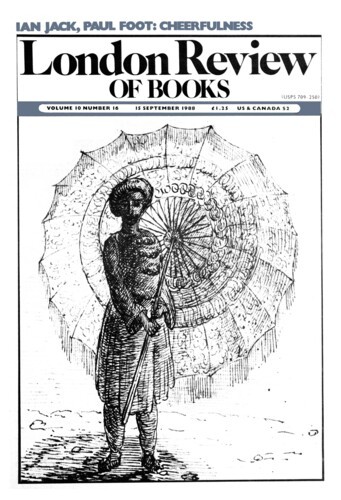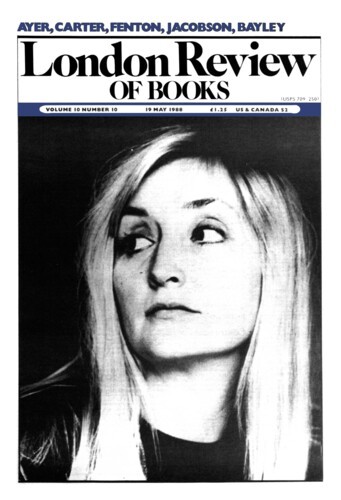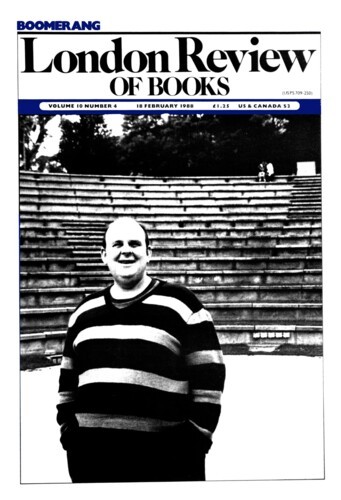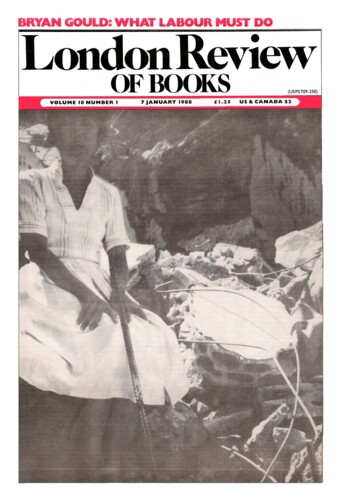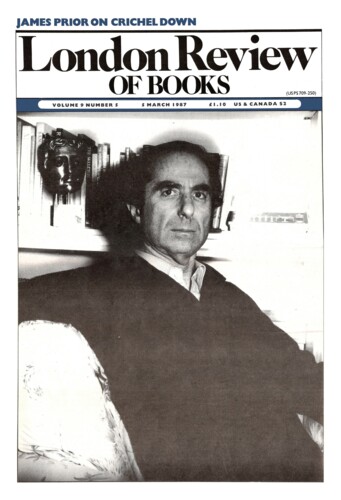Other Indias
Walter Nash, 15 September 1988
For my parents, it was the strangulated crackle of the old gramophone tenor forlornly wailing ‘Pale hands I loved’; for me, it was Kim and lives of the Bengal Lancers; and for my sisters possibly a dream of the launder ed memsahib decorously cantering out of the fort, to be abducted in devastating dark-eyed dumbshow by someone like Rudolph Valentino. It was poignant and dashing and very romantic, but I think we must have guessed that India was not really like that. Nor, I dare say, was it very like some recent televisual fantasies, done in stuporcolour and best brown shoe stain, of a shimmering and turbaned place, cooled only by the tutelary presence of Saint Peggy Ashcroft. These may be our preferred Indias, the Indias of spice and hokum, but they are a far, mendacious cry from the country modern Indian writers want to tell us about.
